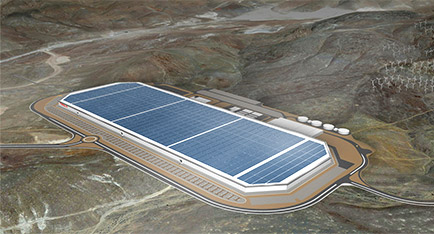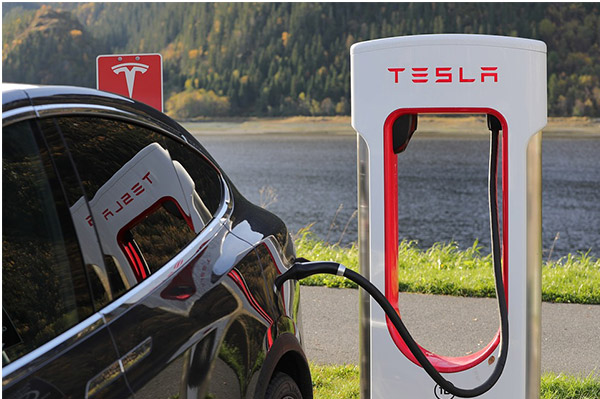- Elon Musk, CEO of Tesla, confirmed the news that India will witness the arrival of Tesla in 2021
- Locally made Electric Vehicles have flooded the market with their cheap pricing and utility restricted to mostly rural and suburban usages
- 12 Indian states have adopted policies for Electric Vehicles so far which may make players like Mahindra, TATA, Tesla, Audi, Hyundai make headways in the Electric Vehicle market
Amidst the post-pandemic manufacturing slump that India is looking at right now, comes good news from American shores. In a recent response to a tweet from a Tesla fan club account of India, Elon Musk, CEO of Tesla, confirmed the news that India will witness the arrival of Tesla in 2021. Musk has been trying to make a foray into the subcontinent market for the longest time however certain key challenges specific to Tesla have restrained him from making any advances. Electric Vehicle as a concept is yet to catch up in an auto market like India which is still conservative in its approach to auto purchase. However, industry experts believe that Tesla’s arrival will act as a shot in the arm for the Electric Vehicle market in India where already small and regional players are scattered along with big brands trying to make a foray.
Next year for sure
— Elon Musk (@elonmusk) October 2, 2020
Affordability & Market Size: Formidable Factors
One of the primary factors which hinder the popularity of Electric Vehicle in the Indian market is the affordability factor. It is common knowledge that every time a new technology is invented and made available for mass consumption, it is more often than not a costly affair and takes time to percolate and permeate to all sections of the society. In a conservative Indian market, this all the more true because the general consumer pattern is to assess a vehicle’s valuation by how much it performs on a certain amount of fuel.
For Electric Vehicles, the idea takes a drastic shift as they aren’t dependent on regular fossil fuel. This affordability factor not only is an outcome of the fact that it is a new technology but also due to the fact that brands like Tesla and Audi – the two most dominant globally acclaimed Electric Vehicle makers have no manufacturing unit in India for their Electric Vehicles. This means such vehicles would be imposed high import duties making it even more unaffordable for a large section of the consumers.

In 2019 Musk had tweeted that the import duties and regulations would double the price of a Tesla car in the Indian market making it virtually unaffordable. The cheapest Tesla starts at $35,000, though Tesla does have a new $25,000 model coming soon. Not much has changed since then and this is still a major concern for the Indian market.
The second key challenge that such brands face is the market size. India’s Electric Vehicle market still remains largely minuscule compared to even other Southeast Asian markets. Electric Vehicles in India are either used for public transport or as two or three-wheelers. Locally made Electric Vehicles have flooded the market with their cheap pricing and their utility is restricted to mostly rural and suburban usages. Even other globally reputed brands Like Tata Motor’s Nexon, or MG Motor’s ZS, or even Hyundai’s Kona have not been able to break this jinx in the Electric Vehicle market in recent times. So for brands like Audio and Tesla, the road ahead is not an easy one at all.
These challenges also arise from the fact that all these brands need to have a more in-depth awareness of the automobile ecosystem in India and how it is dynamically changing. For a lot of buyers buying a car is no more a priority when there are subscription models and car rentals easily available in India. This is one major business channel that such Electric Vehicle makers might need to avail of if they plan to have a sustainable long term business in India.
Future is Electric: Opportunities Galore

However, according to sources, Tesla plans to start an R&D site in India and is in talks with officials from Karnataka Govt. The Karnataka Govt. was the first Indian state to adopt a policy for Electric Vehicles. As of now, there are 12 Indian states that have adopted policies for Electric Vehicles which may make players like Tesla, Audi, Hyundai make headways in the Electric Vehicle market. Apart from this access to power and electricity amongst Indians is a common issue that discourages the use of Electric Vehicles.
India’s electrical infrastructure isn't well suited to support the charging of Electric Vehicles and Tesla needs to develop charging networks pan India wise to sustain its operations. This issue of outdated infra is gradually being solved with more power grids and lines being added and multiple states adopting policies for cleaner and greener energy resources like solar, hydro, wind, nuclear, etc. to remove the dependency on fossil fuels. Infra based development is a key challenge that India needs to overcome to become energy independent via the influx of Electric Vehicles.
Another key opportunity that Electric Vehicle makers can avail of is that GST on zero-emission vehicles was slashed to 5% from 12% in 2019. Also in the very same year, INR 10Cr was allocated for the development, manufacturing, and utility of Electric Vehicles through Phase II of the Faster Adoption & Manufacturing of Electric Vehicle (FAME) scheme. Even GoI’s policy think-tank NITI Ayog is developing massive factories with other ministries to develop Lithium-Ion batteries for Electric Vehicles in India similar to Tesla’s Giga Factory in the US. These are sure shot opportunities that will surely boost the Electric Vehicle market in India in the next few years. Experts believe a constant infra based and policy-based upgrades are required for the Electric Vehicle market as the future is electric.

Talking about Tesla planning to enter the Indian Electric Vehicle space, Varun Chaturvedi, Managing Director & CEO of Volttic Electric Vehicle charging commented that Indian roads will be bumpier rather than fast lanes of the US & EU market. Another challenge will be "Affordability", a key factor for the Indian market. "Different business approach will give TESLA edge over high-end Electric Vehicles. Localization will be a key factor to increase the number & other models could be on a subscription where many Indians are tending to use subscription base Vehicles rather than owning", says Mr. Chaturvedi. He updated that Volttic Electric Vehicle Charging Solutions is all set to develop such strategic charging support to all Electric Vehicle OEMs, including Tesla.
Brands like Evolet India a part of Rissala Group’s recent announcement to start INR 500 Cr Li-Ion Battery manufacturing plant and an assembly plant for two-wheelers in Telengana serve as a major highlight in recent times for the Electric Vehicle market in India. Evolet already has a two-wheeler plant in Manesar which can generate 3.5 Lakh Vehicles per Annum. It has set its sight on expanding its Electric Vehicle portfolio into electric scooters, bikes, mopeds, quad bikes, jeeps, autos, and buses.
Tesla’s foray in India is also boosted by the fact that PM Modi’s visit in 2015 to a Tesla factory in California ended with Musk & Modi having a discussion of opening a similar factory in India. Since then regulations, infrastructure and other roadblocks have held up their foray. Tesla’s introduction to the Indian market might just serve as a catalyst to boost a fast-changing automobile landscape and manufacturing landscape of India for the better.



